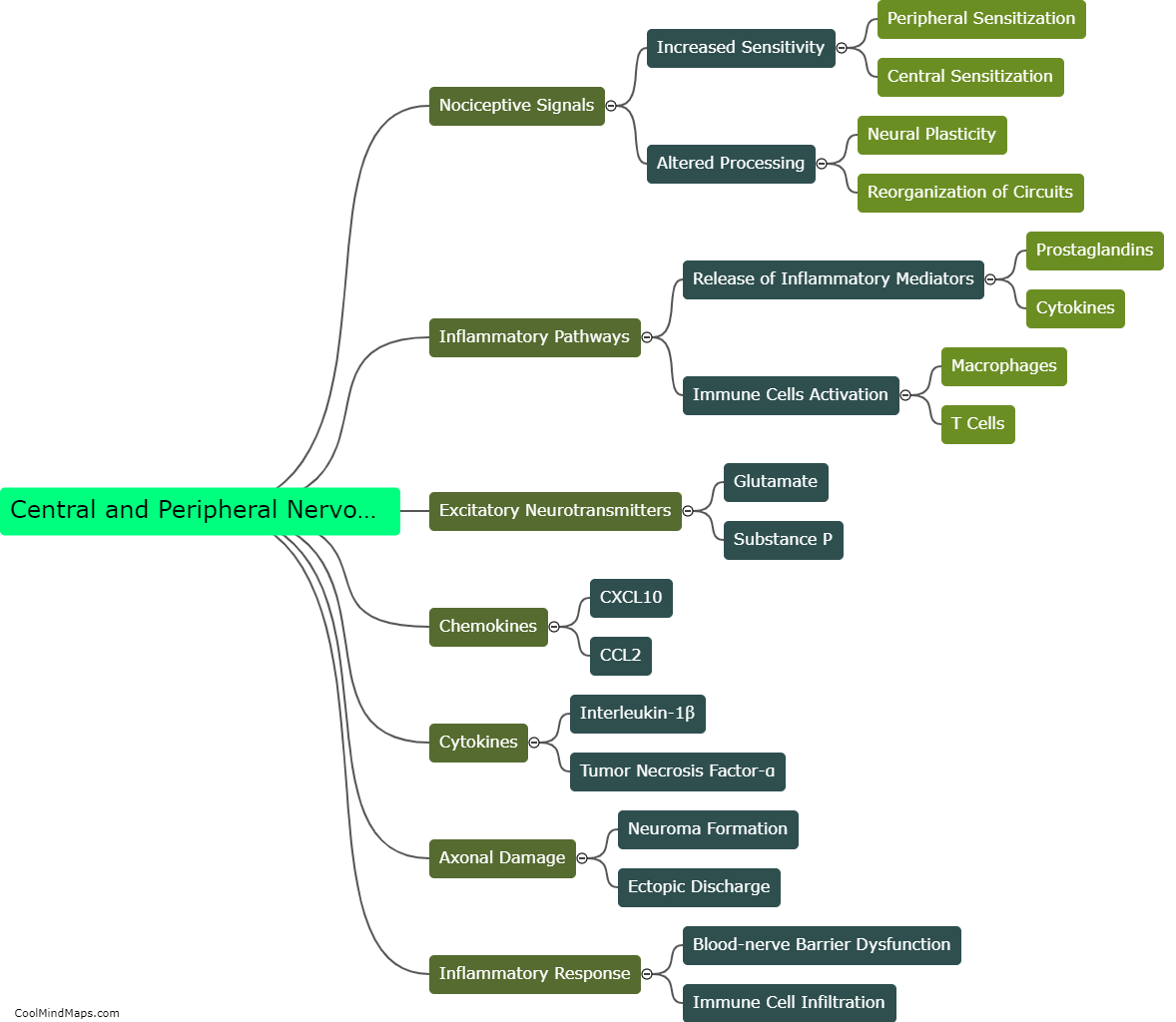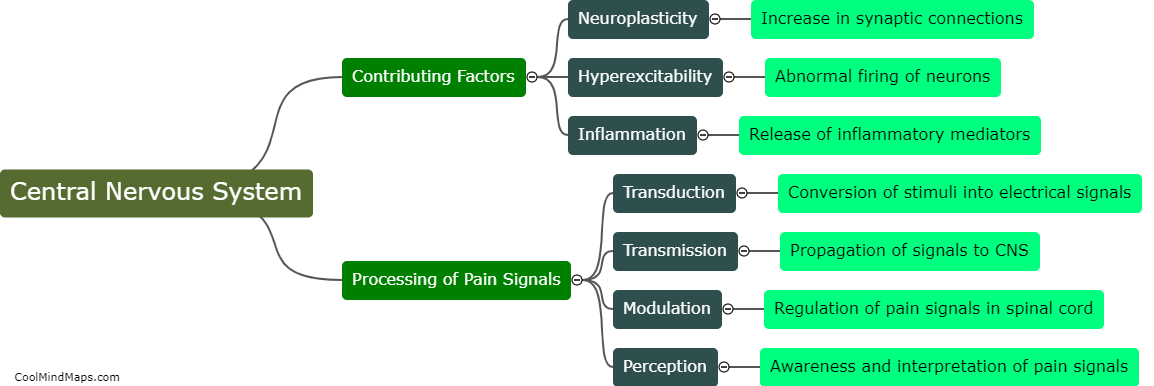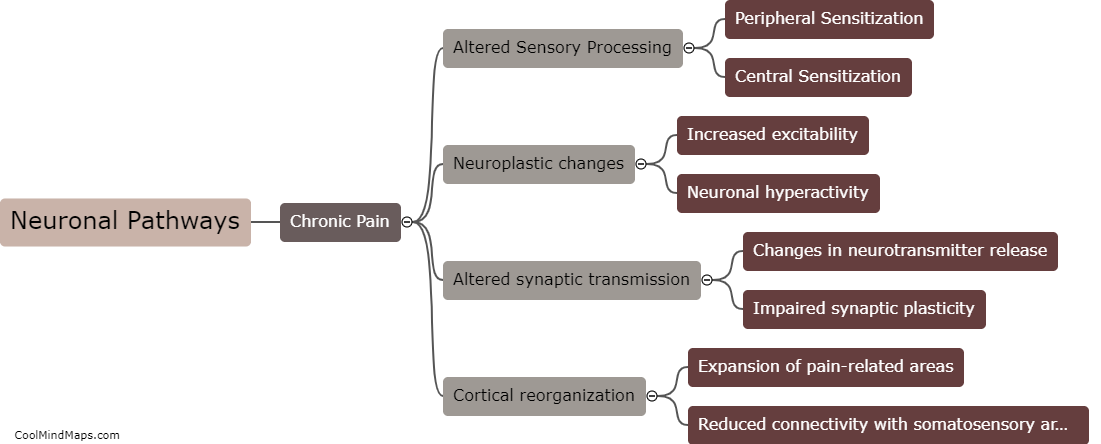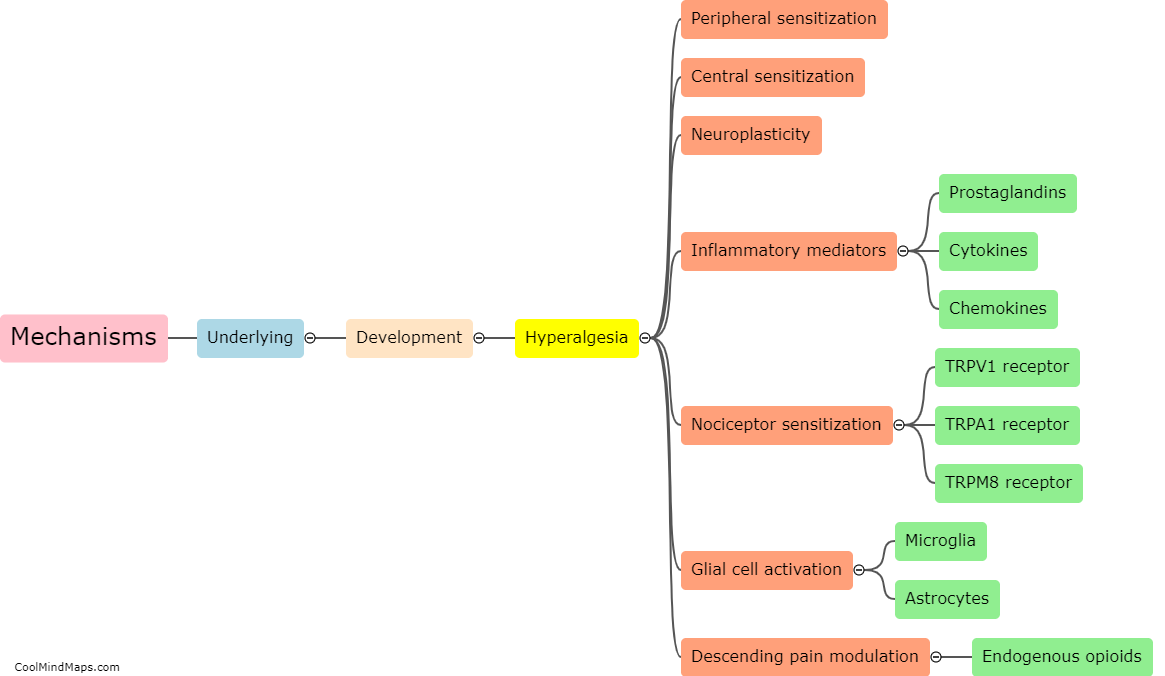What is the role of central sensitization in chronic pain?
Central sensitization refers to the process by which the central nervous system becomes hypersensitive to pain signals, leading to the development and persistence of chronic pain. It involves changes in the neural pathways and amplification of pain signals in the brain and spinal cord. Central sensitization can occur due to various factors, such as traumatic injuries, repeated exposure to painful stimuli, or underlying medical conditions. This increased sensitivity can cause even minor stimuli to be perceived as extremely painful, leading to a vicious cycle of pain. Understanding the role of central sensitization is crucial in developing effective strategies for managing chronic pain and improving the quality of life for individuals suffering from this debilitating condition.

This mind map was published on 2 December 2023 and has been viewed 85 times.











